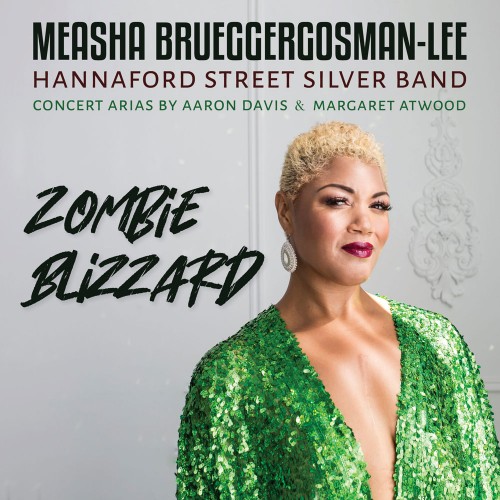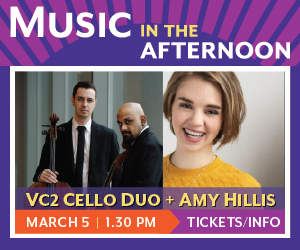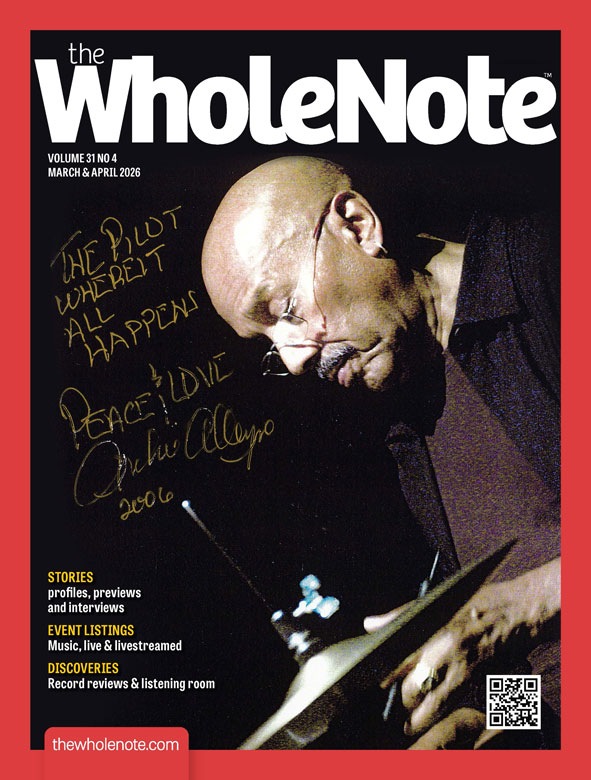I have had a lot of fun going to live musical events these past four weeks – so much so that I will spare readers my periodic rant about post-pandemic supply chain woes, and the perilous state of the arts, and society in general, when workers, in the arts and otherwise, struggle to keep roofs over their heads, both for work and sleep.
Instead I’m just going to tell you a bit about a couple of events I attended that left me feeling as though I had been listening with a new set of ears. So here you go, in chronological order.
Toronto Symphony Orchestra, Spanish Reflections, February 28 and 29
First a bit of background: four or five times a year, going back to 2014, the TSO offers up pre-concert performances by a loosely knit group known as the Toronto Symphony Chamber Soloists, drawn from the ranks of the orchestra, with repertoire chosen in some way to enhance the listening experience of people attending the concert that follows. Sometimes the soloist or conductor of the show that follows joins in. It’s a lovely addition to the concert experience, if you’re lucky or savvy enough to have chosen that particular night, out of three or four, to attend that particular program. (It’s not the only opportunity the Chamber Soloists get to perform – but it’s as far as I know the only one built into the TSO’s regular season.)
Observably, there is some mysterious law of the universe that dictates that the ability of an arts organization to impulsively change its way of doing things is inversely proportional to the size of the organization. So we should, I suppose, be grateful for what we get. But that being said, by dint of ingenious programming, the February 28 and 29 program offered a glimpse of what the pre-concert performance for the lucky few could morph into.
It was an all-Spanish concert: music director Gustavo Gimeno on the podium; piano soloist Javier Perianes; and works by Manuel de Falla (who would have guessed?) and Gimeno-protege and rising star in the contemporary compositional firmament, Francisco Coll. Coll’s Ciudad sin sueño: fantasia for Piano and Orchestra – a concerto in all but name, with Perianes at the keys, closed the first half of the program, and the second half opened with de Falla’s devilish solo piano Fantasia Baetica, arranged, note for note by none other than Francisco Coll. De Falla’s Suites 1 and 2 from the Three-Cornered Hat rounded out the night.
So here’s where the bit of programming genius kicked in. The concert opened with Perianes, alone on stage, performing the 12-minute Fantasia Baetica in its original solo form, after which the orchestra came on and the concert continued, with mirroring in every direction: the solo Baerga with its energy and quirky rhythms prepared the ear for Coll’s City that Never Sleeps; the full-orchestra Baerga reflected the artistry of its composer and its arranger, and after all that fury the Three-Cornered Hat, with a vastly reduced orchestral contingent, had the listener supplying the amplification to rolling river size.
Hannaford Street Silver Band, Zombie Blizzard, March 3
I don’t know if there’s a medical name for the maddening condition I have, or how common it is. What it amounts to is a complete inability to simultaneously absorb words and music that I am hearing for the first time. If I give up on trying to decipher the words, I can probably hum you a bit of the music after the fact. But if I focus on absorbing the meaning of the words as they are sung, then whatever magic is in the music goes straight into my auditory spam folder.
So what do I usually do? Either I make sure to at least read the texts and/or translations in the house program before the house lights go down, especially in halls where I know it’s going to be too dark to read; or I obsessively read along – surtitles or program text, whichever. I used to think it was a perfect compromise, and then something happened at Zombie Blizzard that reduced to dust the idea of program texts and surtitles as an acceptable two-state solution to placate both halves of my divided brain.
As a phrase, Zombie Blizzard is the title of a Hannaford Street Silver Band concert I attended this March and of a recording (from Leaf Music in Halifax). So in a sense, the concert was a CD launch event. As individual words, Zombie and Blizzard are the titles of the first two of seven poems, each of which is recited and then sung in the performance, before moving on to the next.
The Hannafords commissioned Zombie Blizzard from composer Aaron Davis specifically for Measha Brueggergosman-Lee who had latched onto Margaret Atwood’s anthology Dearly during the pandemic, and turned to Davis, her partner in musical crime for the past several years, convinced it had the potential to take their jazz-focused musical partnership into as yet unexplored musical realms.
The resulting poems/songs are described on the program cover as “concert arias by Aaron Davis & Margaret Atwood.” Atwood recites each poem (more accurately the voice of Margaret Atwood is heard reciting each poem), and each recitation is followed by the equivalent “concert aria” sung by Brueggergosman-Lee, with the backing of a 12-piece Hannaford and a jazz trio (piano, drums and bass) with composer Aaron Davis at the piano.
But there were no written texts for the poems anywhere: not in the program, and not on the big screen at the back of the stage, which is where I told myself they were bound to appear if they weren’t in the program. But nope. All we got on the screen was the title of each poem as Atwood’s voice, previously captured for the Leaf Record, rendered each poem in turn.
And oh what beautiful readings Atwood gave. Completely free of the declamatory, angsty bullshit that poets often succumb to when asked to perform their work – afraid that their listeners might get something different from what they wrote than they intended.
Instead the poet somehow gave the words permission to speak for themselves, landing like arrows or silk in the mind’s eye. At peace, fully possessed of all the intelligence it needed, the literary mind could let go, so the heart could listen fresh.
From Brueggergosman too, freed of the responsibility of having to mail words to the mind, we got what felt to this listener like the performance of her life.
Listen to 'Zombie Blizzard' Now in the Listening Room
To close, a quiet but public note of appreciation to Paul Ennis, longtime WholeNote associate, who has, for health reasons, stepped down from the deadline-driven rigors of writing our regular “Classical and Beyond” column. His voice will be missed in our coverage of that beat.
David Perlman can be reached at publisher@thewholenote.com





